Navigating college athletics in the COVID-19 pandemic
The presence of COVID-19 in our world seems to have altered the way everything and everyone functions—and athletics is no exception. When Berea College chose to stop all in-person instruction in March, sending the majority of students home to complete their spring semesters remotely, spring-sport athletes’ seasons were cut short before they really even got started.
As the country has continued to navigate this pandemic, new regulations have altered fall and winter sports programs as well. Berea College has implemented a modified fall calendar. Classes will begin Aug. 12 and run through Nov. 24. After students leave for the Thanksgiving holiday, they will not return until the spring semester begins in January. This calendar change, along with a USA South Athletic Conference initiative to reduce overnight stays for athletic travel and NCAA Division III regulations allowing for up to a 30 percent reduction in competitions, have made significant changes to athletic schedules that were submitted earlier this spring. In addition, Berea students were given the choice to return to campus, remain home and engage in distance learning courses or to take a leave of absence for the fall term. These factors have had a significant impact on the structure of Berea’s athletic programs.
On July 28, the USA South announced the postponement of fall athletics. Citing the health and safety of coaches, trainers, athletics staff and more than 4,000 student-athletes as the top priority, USA South collegiate presidents voted to postpone all conference competition until the spring 2021 semester. The sports impacted at Berea are men’s and women’s cross country, men’s and women’s soccer and women’s volleyball. Men’s and women’s basketball will proceed as intended, at this time.
My hope is that our coaches can use sport-related activities during this global pandemic as a classroom for lessons about endurance, overcoming, achievement and the value of teamwork.
Ryan Hess ’98, Athletic Director
Athletics is a high-impact activity on campus that enhances the quality educational experience for student-athletes. This fall, Berea’s Athletics department hoped to provide an opportunity for continued engagement in intercollegiate competition for student-athletes who choose to return to campus, however, the safety and well-being of student-athletes, staff and opposing teams, in addition to the campus community, is paramount. As COVID-19 remains a fluid situation, the College will continually monitor best practices and guidelines and remain flexible in planning for athletics this academic year.
“Our greatest achievement this year will be successfully fielding teams and completing the season while building our programs for the future,” President Lyle Roelofs said about the impact COVID-19 will have on athletic teams and student-athletes. “Completed seasons will mean teams remained healthy and the campus community faced minimal impact from the virus.”
For many students, the decision to return, defer or remain at home for remote learning was challenging. For student-athletes, athletic participation within a team environment is a significant part of their lives. Many had to balance the desire to compete, concerns of letting the team down and taking a year away from their sport against concerns of their own health and safety, the health and safety of their family and friends, and using a season of participation for a year that will be very different than a traditional season.
“My desire for our student-athletes who chose to return to campus is that participation in athletics will provide a sense of relief as they are able to engage in activities they truly enjoy alongside friends within a competitive environment,” said Ryan Hess ’98, Berea’s director of Athletics. “I hope they find strength in teammates and coaches, a realization of the benefits of remaining physically active and improve their physical and mental health through participation.”
As each program navigates changes such as a reduced number of competitions, elimination of overnight trips, neutral site games, potential spectator exclusion, fear of stoppages within the season and team members choosing not to participate this year, Hess has encouraged the Athletics staff to seek ways for positive progress for programs and student-athletes this semester.
“My hope,” Hess said, “is that our coaches can use sport-related activities during this global pandemic as a classroom for lessons about endurance, overcoming, achievement and the value of teamwork.”
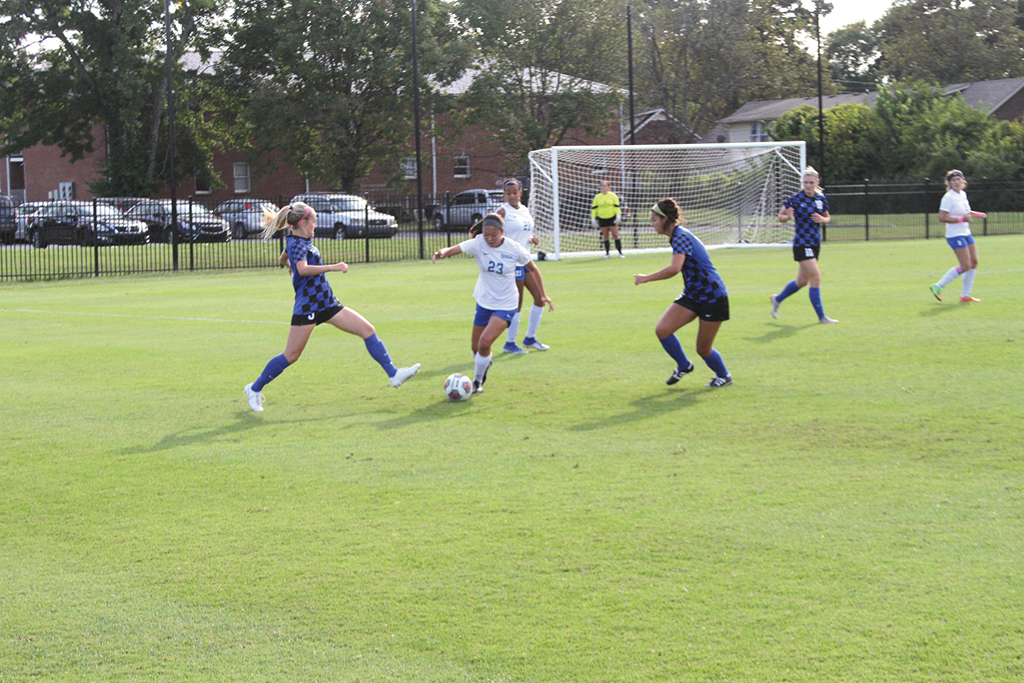
First-year player Nichole Mingey dribbles between two defenders during a 2019 season home game. 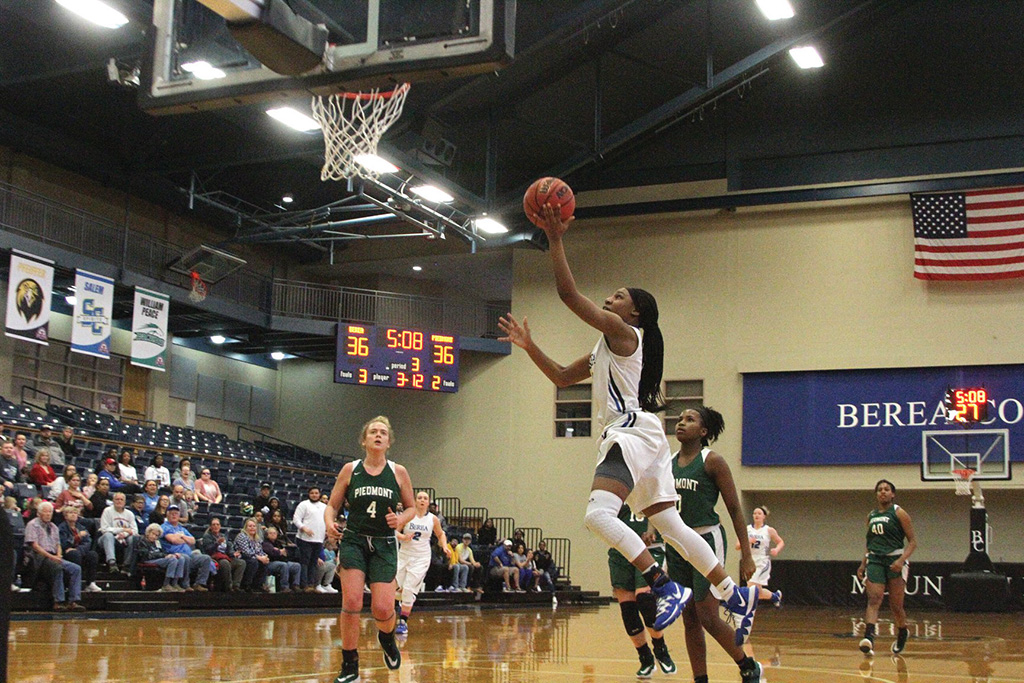
During the 2019-20 season, first-year student Aaliyah Hampton averaged 19.8 points per game to lead the Mountaineers to their first-ever NCAA DIII Tournament appearance. 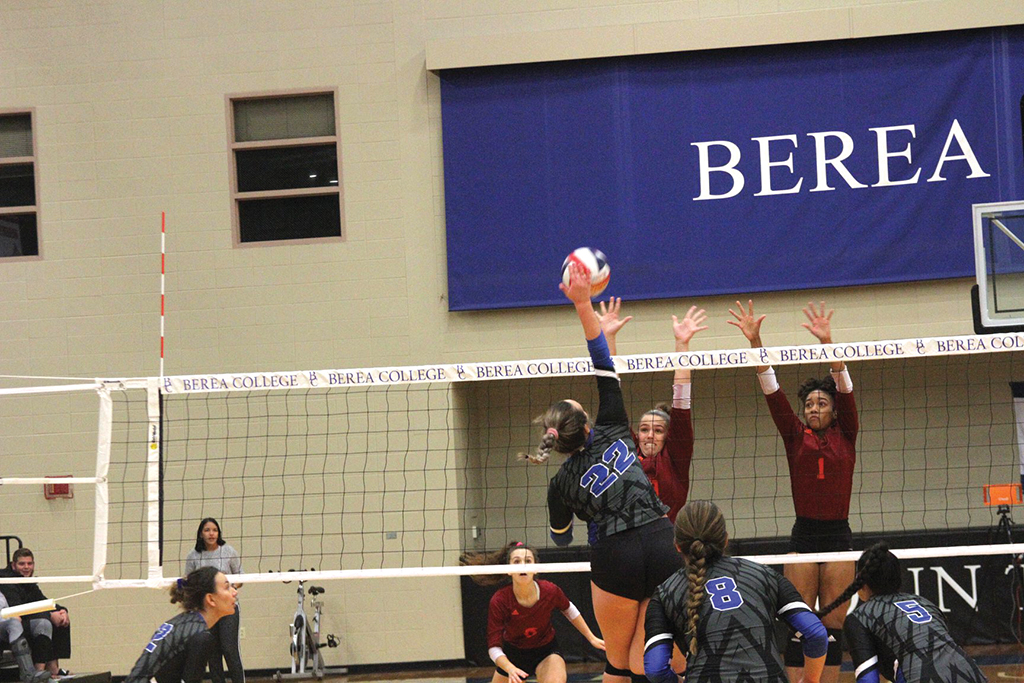
First-year player Vanessa Ramic spikes the ball over two Maryville College players. The women’s volleyball team finished the 2019 season 12-17 overall. 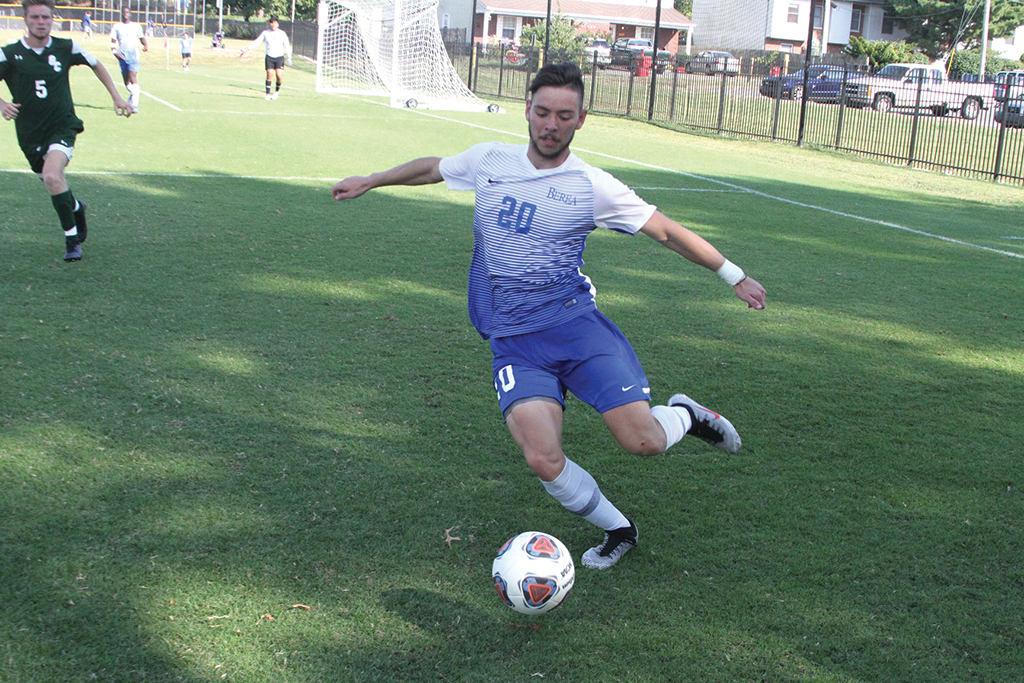
Sophomore Juan Mercado swings back for a cross-field kick during a 2019 season game. 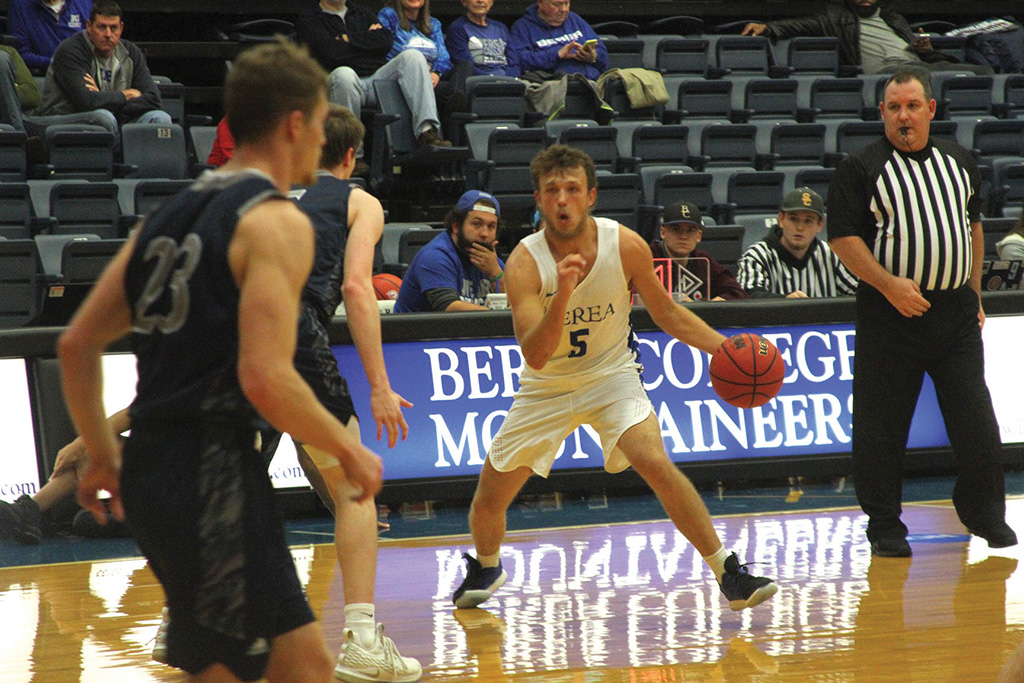
Sophomore guard Isaac Caudill dribbles past a defender. The men’s basketball team finished the 2019-20 season 10-15 overall. 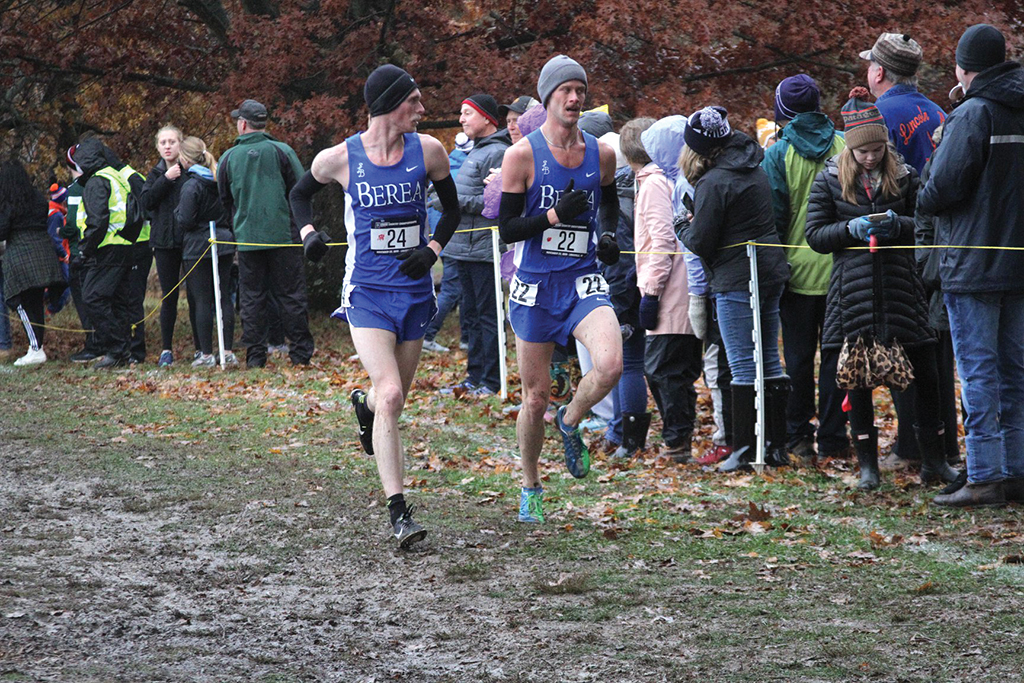
Berea’s men’s cross country team competed in the 2019 Division III National Championships. Berea averaged 26:10 over the 8k course, earning a team total of 723 points to place 30th.

